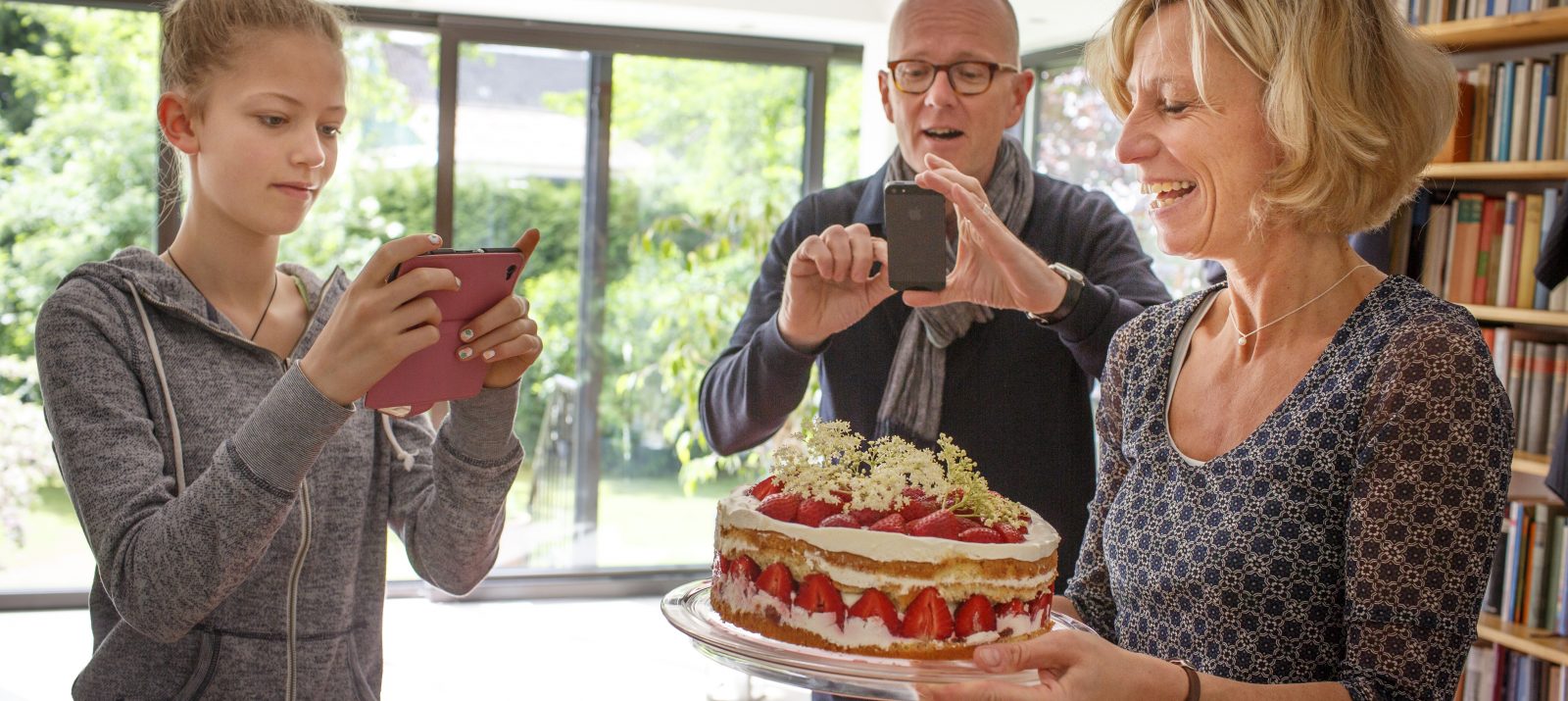
Digitalization has changed our relationship with privacy. What used to be kept as souvenirs in personal photo albums is now presented to the public on social networks. Whether it’s a bikini selfie, an Instagram story of the last birthday party, or the current location – social networks encourage the willing disclosure of private or even intimate moments. Your child is growing up in a digital society. Young people find it particularly difficult to assess what can be shared carefree with the Internet community or what is better left in the private photo gallery on their own smartphone.
Many moments in life are captured by smartphone camera. Not only children and teenagers can lose the feeling for which photos should be posted and which ones rather belong in the private photo album. Make it clear to your child that the photos he or she posts can be seen, saved or redistributed by other people, friends or even all users of the network. Posting a picture should always be well considered. It is possible that in a few weeks you will already regret that private events were shared on the Internet. Talk to your child about whether he or she would also present the photo or video in front of the entire school class, thus illustrating how real a supposedly invisible audience can be.
You are proud of your own children and you want to share this feeling with friends and acquaintances. This can tempt people to feed their own Instagram channel with photos and videos of their children as babies, pictures of starting school, from their vacation, or of their participation in a sports tournament. But your child also has a right to privacy. Possibly it will suffer from the post later because others will bring it up with the old photos. From elementary school age at the latest, you should gradually and actively involve your child in the decision as to whether a picture of him or her should be posted on the Internet. Before doing so, you should respect your child’s privacy and refrain from posting or at least make your child unrecognizable in the pictures. Also, remember to be a role model for your child’s media use!
Above all, the personal data – such as name, date of birth and photos – of children and young people should be particularly protected. Many apps have a minimum age for registration. If your child is younger, you should carefully consider together whether your child can already handle it responsibly. Also ask yourself the following questions: What personal data is requested during registration and is it really needed by the provider? If you choose to do so, create an account together using your own email address and date of birth. As a general rule, disclose as little personal information as possible!
After installing most apps, a default privacy setting is often set up – whether on WhatsApp, Facebook or Instagram. This often means maximum publicity. Go through the privacy settings with your child. With just a few clicks, you can set, for example, that content is only shared with friends, that only contacts can see the profile picture in messengers, or that the app is not allowed to access the location.
Privacy on the Internet is an important topic and children in particular cannot yet foresee the possible consequences of posting private pictures on the Internet. In order to protect your child from possible dangers, it is important that you talk to him or her about what personal data is and what can be content worth protecting. At the same time, you must also respect your child’s privacy yourself – this applies to the diary as well as to the use of social networks. There is a fine line between protecting the child and respecting the right to self-determination. By the time they hit puberty at the latest, your child may no longer want you to follow them on Snapchat and you may not get to see what they post there. Accept this, but stay in conversation with him and point out the importance of protecting his privacy online as well.